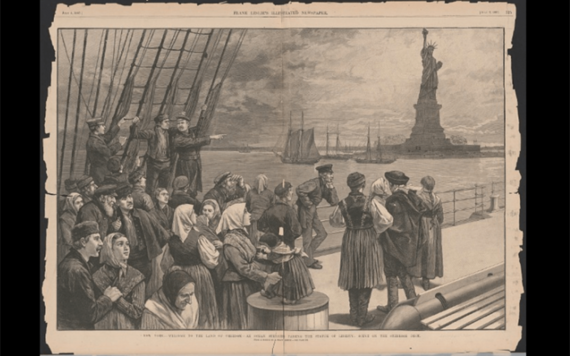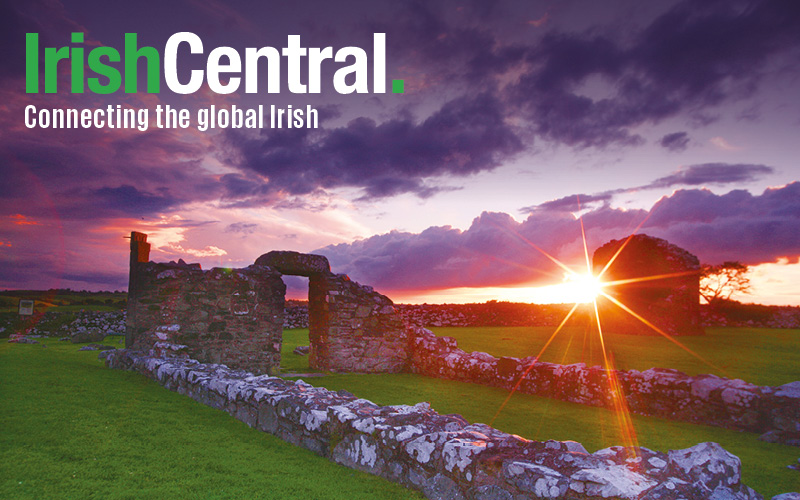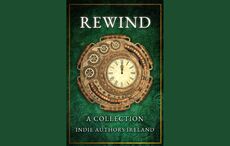Doctor Kevin Cahill is one of the most highly regarded physicians in the US, a man who has treated popes and presidents and a hugely influential figure on humanitarian and refugee issues. In his latest book “Labyrinths” (Refuge Press New York) about his life’s work, he opens by discussing the powerful impact his Irish background and neighborhood had on his life decisions.
We are all influenced in infancy and childhood by genetics, by the mores and customs of family. In my instance, the story starts a generation before I was born, with all four grandparents emigrating from Ireland in poverty, but with dreams and determination. In those years they held a “wake” for the immigrant, as they might for the deceased, for when one left it was likely to be forever.
They survived in the new world by a basic system of mutual ethnic support, and by adhering to the universal code of the outsider in society. An old Irish relative, in his policeman’s uniform, warned me at the age of five, “Never write what you can say, and never say it if you can nod your head.” That was an immigrant’s way of avoiding conflict so that his children would have an education and a more secure life in America.
My father’s father came to the United States as a young man from rural County Kerry. He had listed himself on the ship’s roster as “scholar”. He came through Ellis Island, was befriended by his cousin, Denis, a policeman, and within a few years joined the NYPD. Gradually, through the mounted horse corps, and the street patrol, he became a Captain; he was NYPD’s first Director of the Telegraph Center, proudly supervising a handful of Morse code operators in a single, sparse room. I have a picture of him in that room in my Fifth Avenue desk drawer, never forgetting from whence I sprung.
Read more: How an Irish American doctor changed forever the training of humanitarian workers

Ellis Island. Image: Library of Congress.
His wife died in the childbirth of their third child, Catherine; and he raised his sons, Dan and John, and their daughter with devotion and skill, factors not uncommon in the American Irish immigrant. Since his sons went to a Jesuit scholarship school, it seemed natural to him, though in retrospect it must have been inordinately rare, that he learn Latin and Greek in order to check their homework. He died of diabetes four years before I was born, but his influence remained strong in our family.
My father’s brother, Dan, had just become a practicing lawyer when the Great Depression hit America. My father had, simultaneously, begun medical school and could not afford the tuition (one of the framed items in my office is a 1930 bill from Georgetown Medical School: $350 for the semester with a $10 rental fee for a microscope). Dan gave up his legal career to become a public school teacher in order to secure a regular salary that could pay Dad’s way through medical school, an act my father never forgot.
My mother’s father and mother lived long enough for me to remember them as much as a five-year-old can recall the smells of an old man and woman. They moved into a house on the same block as us in the Bronx in order to be near my father’s medical care. I recall little of this subdued, introspective couple. He was a “bookie”, a person who set odds and accepted bets on horse races. Years later, I was proud to know he was remembered at the Saratoga Race Track as “Honest Mike.”

Kevin Cahill and the President of Ireland Michael D Higgins presenting the Distinguished Services Award for the Irish Abroad at Aras An Uachtarain in Dublin this evening. Photo: Sam Boal /RollingNews.ie
My maternal grandmother’s sister and brother-in-law both died of the “Spanish Flu” in 1919 leaving behind nine young children. “Honest Mike” adopted the family, raising them with his own eight children in a large house in Brooklyn. Those were pre-welfare days, and immigrants protected their own, out of love, loyalty, and necessity. They didn’t expect praise, and probably didn’t get much. They did whatever was required to keep the family together. All seventeen children graduated from college, no mean feat in any generation.
My earliest memories at about age four, of our home, are of a gentle, colorful, seemingly endless flowing pattern of almost predictable household tasks, affected by the seasons, the sea, and Celtic fairy tales. There were deeply ingrained, but not oppressive, religious traditions in our Irish Catholic home – nightly prayers, Saturday confession, Sunday Communion, First Fridays, Ash Wednesdays, with the symbolic markings of burnt palms on the forehead, Lenten sacrifices, Easter, the birth of the Baby Jesus, Sodality, the family rosary “disaster” – all gave a particular rhythm to the calendar year.
The family rosary was promoted by a cape-waving cleric on early TV under the adage “the family that prays together stays together.” This particular spiritual exercise quickly collapsed in the Cahill home. Trying to keep eight young children on their knees after dinner, repeating prayers and counting beads, was doomed when my father’s pants fell to his ankles as he rose to discipline an inattentive, playful boy.
Laughter and shared joy replaced the mournful, repetitive attempts to reach God in a structured and forced way. That scene became part of family tradition. It reinforced the constant paternal reminder that we should have a healthy skepticism for those with power or position, even for those wearing the “cloth,” and that we should be suspicious of those who believed there was only one way to achieve success, whatever that was.
He wisely advised us “to beware of the people who genuflect too much,” noting that the external trappings of religiosity rarely matched the necessary love and compassion promoted by Christ or Mohammed, Buddha or other spiritual leaders.
The subtle, steady, lasting forces of childhood noted above were captured by my father in the poetry of Latin and Greek masters as well as Irish bards, recited repeatedly at our kitchen table. Those early years of childhood and adolescence were a privileged period of protected discovery. We were happy and secure as part of a loving family. Particularly before the identity of each emerges, one’s self seemed but an extension of an already existing organism.
Other organisms certainly flourished in our home. The oldest four children were boys, then came four girls. When we were young, we were told we would lose our essential oils if we took more than one hot bath a week. Even then we strongly suspected that the basis for this argument lay in the difficulty (and cost) of getting adequate hot water from the coal-fired heater. To make matters worse, all the boys had to use the same water; it was then changed for the girls. There must have been some deep and hidden Irish Catholic logic at play here.
When I was six, I firmly believed that the Nazis might well land on the beach at our summer home in New Jersey had not my brother John and I watched, carefully, from the upstairs window of a shingled house on a sand dune. We tried to identify the size and shape and sound of American planes so we could detect invaders, and looked for any strange new lights in the sky that might indicate danger. We could then shout to the Coast Guard warden protecting the shoreline on horseback─ all before falling asleep at 8 p.m.
The interaction of God and State during the war was made very real to me, as a six-year-old who gave up jelly as his penance for Lent. That innocent gesture of sacrifice became inextricably linked, and importantly, allowed me to be involved with the American battle against the evil Japanese and Nazi empires. Having given up jelly I started to substitute butter on my morning bread. But, as my parents quickly noted, I was, in a period of butter rationing, really contributing to the fascist forces in the deadly global struggle, somehow being partially waged at our breakfast table by dietary restrictions. How confusing warfare was; I was soon ordered to resume my morning jelly.
In the Bronx I contributed to winning the war by dutifully collecting tin cans and newspapers that we were told would somehow be transformed into tanks, an evolution I never understood and would repeatedly question. I was also in charge of growing radishes in our backyard “Victory Garden.” Radishes, I later learned, will grow anywhere and need almost no attention. But being young, and innocent, and very proud of the leafy blossoms above the soil and the bright red, hard bulbs beneath, I was glad to do my small part in the fight for freedom.




Comments